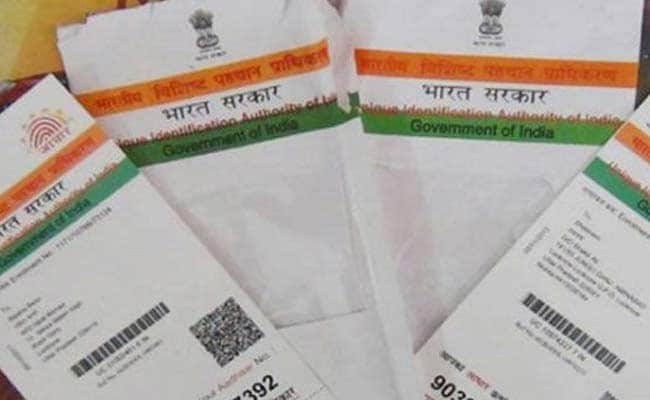
Government has made Aadhaar card mandatory for the registration of death from October 1.
New Delhi:
An Aadhaar number will be required for getting death certificates from October, the Home Ministry announced on Friday, saying the 12-digit unique identification number would be needed to establish the identity of the dead person. The rule will come into force across the country except Jammu and Kashmir, Assam and Meghalaya.
The applicant's Aadhaar number, as well that of the dead person's spouse and parents would, however, have to be provided.
"An applicant who is not aware of the Aadhaar number of Enrolment ID Number of the deceased will be required to provide a certificate that the deceased person does not possess Aadhaar number to the best of his/her knowledge," the order by the Registrar General, who functions under the home ministry, said.
This is the first time that the use of Aadhaar number has been mandated by the home ministry's Registrar General that had been at loggerheads with the agency that issues Aadhaar. The NDA government, however, decided to shove the home ministry-run National Population Register into the cold storage on which crores of rupees had been spent.
An official statement said the use of Aadhaar card for death certificates will result in ensuring accuracy of the details provided by the relatives or dependents or acquaintances of those who have died. It said that a false declaration given by the applicant relating to the Aadhaar card would be treated as an offence.
"It will provide an effective method to prevent identity fraud. It will also help in recording the identity of the deceased person. Further, it will obviate the need for producing multiple documents to prove the identity of the deceased person," a home ministry spokesperson said.
The applicant's Aadhaar number, as well that of the dead person's spouse and parents would, however, have to be provided.
"An applicant who is not aware of the Aadhaar number of Enrolment ID Number of the deceased will be required to provide a certificate that the deceased person does not possess Aadhaar number to the best of his/her knowledge," the order by the Registrar General, who functions under the home ministry, said.
This is the first time that the use of Aadhaar number has been mandated by the home ministry's Registrar General that had been at loggerheads with the agency that issues Aadhaar. The NDA government, however, decided to shove the home ministry-run National Population Register into the cold storage on which crores of rupees had been spent.
An official statement said the use of Aadhaar card for death certificates will result in ensuring accuracy of the details provided by the relatives or dependents or acquaintances of those who have died. It said that a false declaration given by the applicant relating to the Aadhaar card would be treated as an offence.
"It will provide an effective method to prevent identity fraud. It will also help in recording the identity of the deceased person. Further, it will obviate the need for producing multiple documents to prove the identity of the deceased person," a home ministry spokesperson said.
Track Latest News Live on NDTV.com and get news updates from India and around the world

